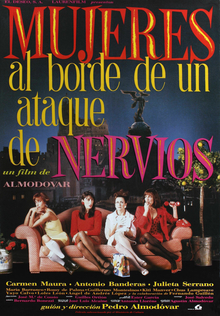
Aka Tout s’est bien passé. This is our story. Novelist Emmanuèle Bernheim aka Manue (Sophie Marceau) receives a call from her sister Pascale (Géraldine Pailhas) informing her that their retired businessman and art collector father André (André Dussollier) has suffered a stroke. She rushes to the hospital in Paris where she sees the ill effects of this cardiac event: his face is horribly stricken, falling to one side, his speech is affected. She looks at the catscan of his brain on her computer at home. Manue is a devoted visitor despite the cruelties inflicted upon her in her childhood when he called her ugly, constantly berating her for her huge appetite (she is patently beautiful and thin). She used to fantasise about killing him. She is stunned when he asks her to help him die. It’s still illegal so Manue debates the situation with Pascale and then pays a discreet visit to a lawyer for advice and contacts a Swiss clinic run by a woman doctor (Hanna Schygulla). Their mother, his ex-wife (Charlotte Rampling) is a sculptress in the throes of arthritis, Parkinson’s and depression who doesn’t care a fig for him. She is already devastated by her own loss. She reminds her daughters that her parents didn’t attend their wedding because they warned her she was marrying a homosexual. His lover Gérard (Grégory Gadebois) creates a row in the hospital and the women have to stop him visiting. He says he’s getting the great watch he was promised by their father. As Andre gets better Manue is convinced he has forgotten about the whole idea but he tells several people including a cousin and regularly reminds her to make the arrangements. Then someone rats the women out to the police ... I want you to help me end it. Adapted from the titular autobiographical novel by Emmanuèle Bernheim by writer/director François Ozon, who regularly collaborated with the late novelist (she died in 2017), this difficult and highly emotive subject is treated in such a matter of fact realistic way and yet with a sure lightness of touch it becomes a remarkable viewing experience, decorated with stunning acting that nonetheless doesn’t feel like competitive performance. The unsentimental approach to a fraught scenario, dripfeeding backstory into the well managed narrative, subverts any potential for melodrama. Don’t tell your sister, but this story would be great for one of her novels! By turns desperate, petulant, pleading, sorrowful, distressed, enthusiastic, Dussollier is majestic as the playful monster, the gay dad whose bonkers lover has to be banned from visiting – until Manue sees them in a tender moment and eventually Gérard gets the Patek Philippe watch and it is clear the end is nigh. Manue is the daughter whom he treated disgracefully but whom he secretly adores as her sister clearly realises. Everything’s coming together. He wonders randomly when informed of the cost of the Swiss solution how poor people do it. They wait to die, shrugs Manue. This wealthy industrialist reminds her to get his Legion of Honour ribbon. We are in the world of the superannuated bourgeoisie for whom money is no issue but ill-health is the great leveller and financial comfort cannot stop the indignities of the loss of bowel control and the need for 24/7 care. As the moment nears and subterfuge is required the only person keeping a truly clear head is the man who sees only one option rather than succumb to the dreadful infirmities that will encroach upon him as further incidents will surely occur given his prognosis. He recognises his great life, his entitlement, his privilege and now his destruction. Amid all the superbly constructed tension there is great humour, telling detail, laughter, tears. A rich and timely drama, fair in every possible way. Mesmerising. You know, he’s a bad father. But I love him








